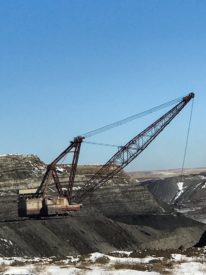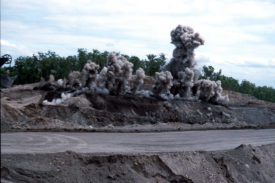From Alan:
Feebates in France have performed exceptionally well, according to Market Watch. It’s more than a decade since any Cascadian jurisdication (British Columbia) considered a similar proposal. Is it time?
The blog Plurale Tantum unveiled a fascinating examination of why people of color and bicycle advocacy don’t seem to go together. Lots to think about—and do—to build a sustainability movement that matches Cascadia’s shifting demographic profile.
WaPo’s Ezra Klein articulates what’s become my growing concern about the brokenness of the governing bodies with jurisdiction in Cascadia:
“We spend too much time debating political events and the choices leaders make and not enough time debating the structure of political institutions and the impersonal economic and systemic forces that drive the choices leaders make.”
“It’s the institutions, stupid,’ is the right way to understand most of what happens in American politics, but it’s not the way people want to understand American politics, so it’s often ignored.”
I read the 1994 article “It’s the Institutions, Stupid,” to which Klein referred. It’s a fascinating review of the shifting institutional barriers to comprehensive reforms in the American republic. The paper is a study of health care reform, but the same barriers halted comprehensive climate policy last year.
Finally, I’m enamored by 350.org’s new campaign to make clear that the US Chamber of Commerce, whatever else it is, is not the legitimate voice of business in America. More than 1,000 businesses signed a statement last week declaring that the US Chamber does not speak for them on climate. Many of those businesses are in Cascadia. I expect this number to keep rising rapidly.
From Clark:
Just for fun: an entertaining video shows that placebos are powerful medicine. More evidence that people are weird.
The New York Times features an interactive map of happiness and well-being in the US, based on recently-released data from Gallup. It sucked me in for longer than I’d intended. Apparently, Idahoans are a pretty happy bunch. And greater Seattle enjoys high overall well-being—but we still trail the south San Francisco Bay area. Must be the weather.
My pal Amanda Little wants consumer products labeled for energy, the way food is labeled for nutrition. Cool idea—but having done my share of energy accounting over the years, it also sounds awfully difficult in practice.
Matt Yglesias reads polling numbers—and finds that being “well informed” about politics can make you less informed about climate science. People who pay a lot of attention to politics take their intellectual cues from political leaders—so if you lean conservative, learning more about the political elite’s climate opinions actually makes you dumber about the scientific consensus.
From Eric de Place:
If you read only one of my recommendations this week, read Matt Winters in the Daily Astorian. (“I love coal. I imagine most people have never seen any. If you’re among them, don’t worry, because I’ve seen your share and then some.”) Winters tells the story of his work in coal mining as a young man, and he gives us a good flavor of the industry, and what’s wrong about it. (“Just about any component bigger than a lug-nut was so monstrously oversized as to represent a crush risk to workers. Inch-thick brake discs were large enough to use for card tables. Accessed via steep steel ladders, driver’s compartments sat a good 10 feet off the ground and were bigger than some New York apartments.”)
Sightline alum Roger Valdez is doing what amounts to a liveblogging of his reading of the Seattle Land Use Code. It may sound dull, but Roger makes it into a rather fascinating exercise in understanding why the city looks and feel and acts the way it does.
Alex Steffen’s new book is out, a sort of Worldchanging 2.0—a big update and revision to the original that takes into account the many changes to the landscape of clean energy and sustainability. (I’m planning to write a more complete review in the next couple of weeks, so check back here for that.)
I finally dug into “BC’s Dark Dirty Secret: Big Coal and the Export of Global Warming Pollution,” recently published by the Victoria-based Dogwood Initiative. I take this to be the go-to source for understanding the province’s surprisingly large coal industry. Once you get past some rather redundant material near the beginning, the report does a very nice job of providing a thorough examination (with exhaustive citations) of BC coal and it’s contribution to global climate change. (Incidentally, and no disrespect intended, the report includes one of the more bizarre instances of social math I’ve run across: “Teck, the largest coal miner in BC with five mines, produced enough coal in 2008 to fill 28.5 million coffins, which if laid end to end would form a line over 7 coffins wide reaching from Vancouver to Beijing.”)
From Eric Hess:
An infographic looking at the Science Behind Traffic Jams. It won’t get you out of traffic, but at least you’ll have a better idea of what’s going on.
Oregon Rep. Earl Blumenauer talking about why he loves biking in DC. Burning calories, not fossil fuels.
The oldest known Albatross gives birth–at 60.







